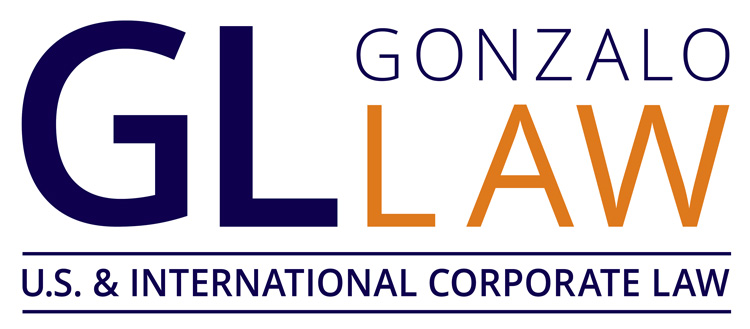The impact of blockchain technology across the globe is undeniable. This technology has the potential to transform various industries, change the way we conduct transactions, and how we manage data. Its pervasive use is notable when we consider that it can exist both publicly and privately and has uses with digital currency, NFTs, the metaverse, healthcare, voting records, supply chain management, title and deed management, and much more. If you are a U.S. company or a foreign business that operates within the U.S, understanding how this leading technology works is imperative.
The U.S. spends more than any other country on technology, with a total of $991 billion U.S. Dollars spent in 2022. That is followed by Japan who spent $349.16 billion and China that $287.82 billion. Soon, The current global spending on blockchain is expected to grow from $6.6 billion in 2022 to $19 Billion U.S. Dollars in 2024[i]. In summary, the U.S. being a leader in technology spending such as blockchain can provide companies with access to new technologies, talented professionals, a large market, government funding, valuable networks and ecosystems, and a more favorable regulatory environment. This contributes to company growth and success. As such, it is significant for companies to understand how blockchain technology works.
Here are eight key reasons why people should care about blockchain technology:

- Security: Blockchain technology is decentralized and uses complex cryptography to secure transactions, making it virtually impossible for hackers to tamper with or corrupt the data. This can lead to increased security for individuals and businesses in various industries.[1]
- Transparency: Blockchain is a transparent system, that allows all participants to have access to the same information and allows for tracking of the entire history of transactions, adding a new level of trust and accountability. [2]
- Decentralization: Blockchain technology is decentralized, meaning that it is not controlled by any single entity. This can lead to greater autonomy and control for individuals, as well as increased competition and innovation. [3]
- Efficiency: Blockchain can increase efficiency by automating processes, reducing the need for intermediaries, and streamlining transactions. This can lead to cost savings for individuals and businesses. [4]
- Digital Identity: Blockchain can be used to create secure digital identities, which can be used for a variety of purposes such as online voting, digital identity verification, and access control, making it more reliable and efficient. [5]
- Smart Contracts: Blockchain technology enables the creation of smart contracts, which are self-executing contracts with the terms of the agreement between buyer and seller being directly written into lines of code, this can increase efficiency and security in the legal process. [6]
- Digital Asset Management: Blockchain can be used to create digital certificates of authenticity, which can be used to track and verify the ownership of physical and digital assets, this can help to combat intellectual property infringement and piracy. [7]
- New Business Models: Blockchain technology allows for the creation of decentralized platforms and marketplaces, which can be used to connect buyers and sellers directly, cutting out intermediaries and creating new opportunities for businesses and individuals. [8]
It’s important to note that blockchain technology is still relatively new and its full potential is still being explored, yet it has the potential to revolutionize how we do business. Companies and industries that do not stay aware of new technologies, such as blockchain, risk being left behind and losing clients who prefer to work with the competition that stays current. [9]
For more information on legal protections to keep in mind, contact legal counsel for additional information.
_________________________________________________________________________
About the Authors
 Nouvelle L. Gonzalo, Esq. is a magna cum laude graduate of New York University, an honors graduate of the Ohio State University College of Law, and was a visiting scholar at Oxford University in Oxford, England. Atty. Gonzalo is a U.S. and international corporate lawyer who works with companies across the globe. She is the managing attorney of Gonzalo Law, a U.S. and international corporate law firm with offices in Florida and Ohio. In addition to the active practice of law, she served as adjunct faculty of international corporate law at the University of Florida, Levin College of Law for three years. She is recognized with the top 2.5% of Florida lawyers as a rising star by the national organization, Super Lawyers from 2019- 2023. Her practice areas include U.S. corporate contracts, mergers and acquisitions, international corporate law, and intellectual property law. Atty. Gonzalo can be reached at [email protected] or via phone toll free at 855-466-9256.
Nouvelle L. Gonzalo, Esq. is a magna cum laude graduate of New York University, an honors graduate of the Ohio State University College of Law, and was a visiting scholar at Oxford University in Oxford, England. Atty. Gonzalo is a U.S. and international corporate lawyer who works with companies across the globe. She is the managing attorney of Gonzalo Law, a U.S. and international corporate law firm with offices in Florida and Ohio. In addition to the active practice of law, she served as adjunct faculty of international corporate law at the University of Florida, Levin College of Law for three years. She is recognized with the top 2.5% of Florida lawyers as a rising star by the national organization, Super Lawyers from 2019- 2023. Her practice areas include U.S. corporate contracts, mergers and acquisitions, international corporate law, and intellectual property law. Atty. Gonzalo can be reached at [email protected] or via phone toll free at 855-466-9256.

Sofia Orrantia is a graduate of the University of Florida with a Bachelor’s in Arts in Foreign Languages with a concentration in Film & Visual Art. Currently she is a rising third year at Quinnipiac University School of Law. Sofia Orrantia is a Summer Associate at Gonzalo Law LLC, a U.S. and international corporate law firm. In addition to her studies of law, she serves as the Director of Internal Communication for the Latinx Law Student Association of Quinnipiac University School of Law. As well as a Student Member on the Diversity and Inclusion committee of the Law School.
Contributing editors include Atty. Passion Wells, Atty. Tom Dattilo, and Mr. Kevin Ellenburg.
________________________________________________________________________
[1] Zhang, R., Xue, R., & Liu, L, Security and Privacy on Blockchain, 52(3) ACM Computing Surveys 51 (2020).
[2] Francisco, K. & Swanson, D., The Supply Chain Has No Clothes: Technology Adoption of Blockchain for Supply Chain Transparency, 2(1) Logistics 2 (2018)
[3] Yue, K., et al., A Survey of Decentralizing Applications via Blockchain: The 5G and Beyond Perspective, 23(4) IEEE Communications Surveys & Tutorials 2191 (2021)
[4] Benton, M.C., Radziwill, N.M, Purritano, A. W., & Gerhart, C. J., Blockchain for Supply Chain: Improving Transparency and Efficiency Simultaneously, 20(3) Software Quality Professional 28 (2018)
[5] Takemiya, M. & Vanieiev, B., Sora Identity: Secure, Digital Identity on the Blockchain, IEEE 42nd Annual Computer Software and Applications Conference 582 (2018)
[6] Khan, S.N, Loukil, F., Ghedira-Guegan, C., et al., Blockchain smart contracts: Applications, challenges, and future trends, 14 Peer-to-Peer Netw. Appl. 2901 (2021)
[7] Finck, M., Moscon, V., Copyright Law on Blockchains: Between New Forms of Rights Administration and Digital Rights Management, 50 International Review of Intellectual Property and Competition Law 77 (2019)
[8] Schlecht, L., Schneider, S., Buchwald, A., The prospective value creation potential of #_ftn8Blockchain in business models: A delphi study, 166 Technological Forecasting and Social Change 120601 (2021)
[9] https://www.nationmaster.com/country-info/stats/Media/Information-and-communication-technology-spending/Current-US$
[i] https://www.statista.com/statistics/800426/worldwide-blockchain-solutions-spending/






